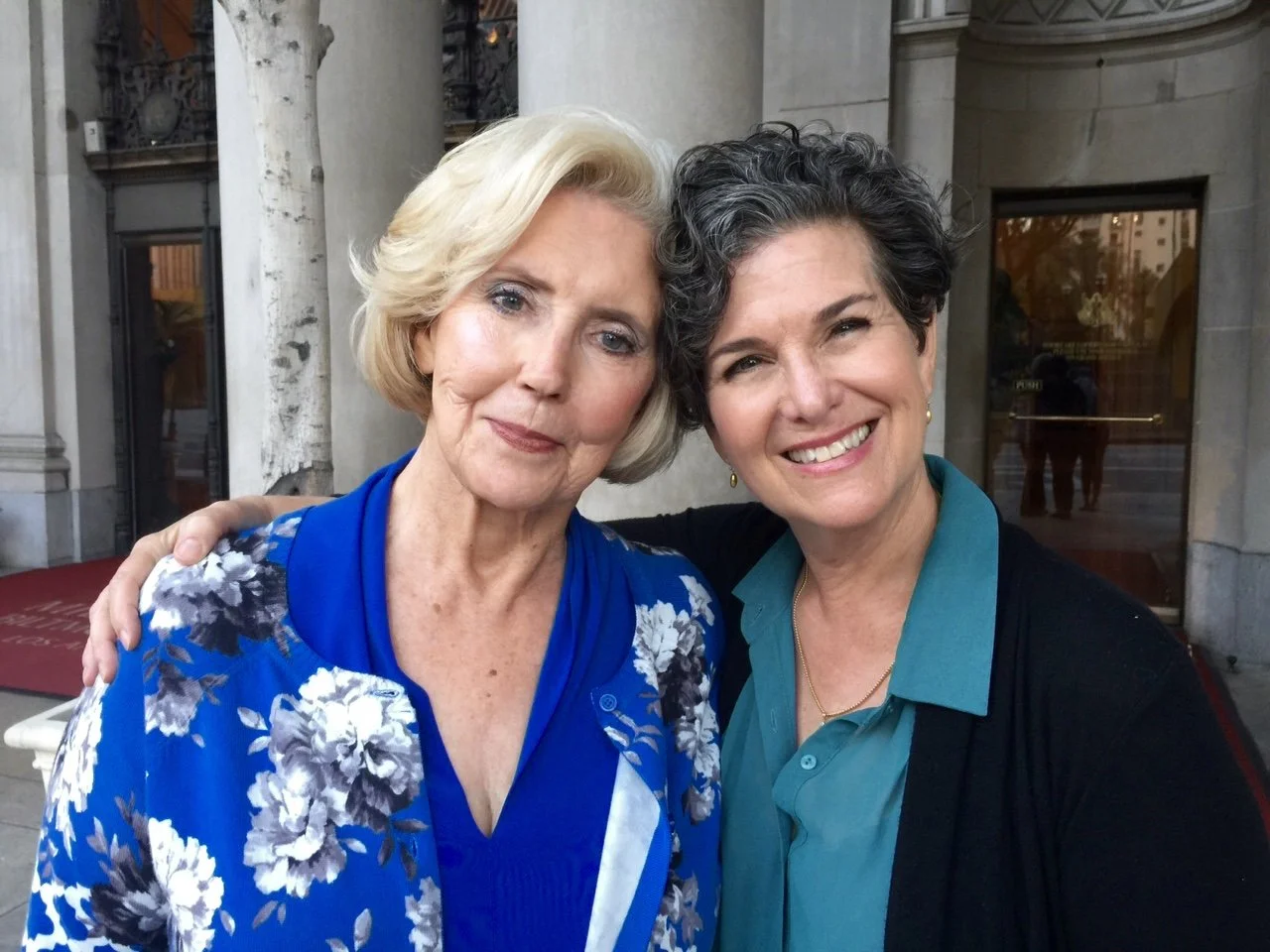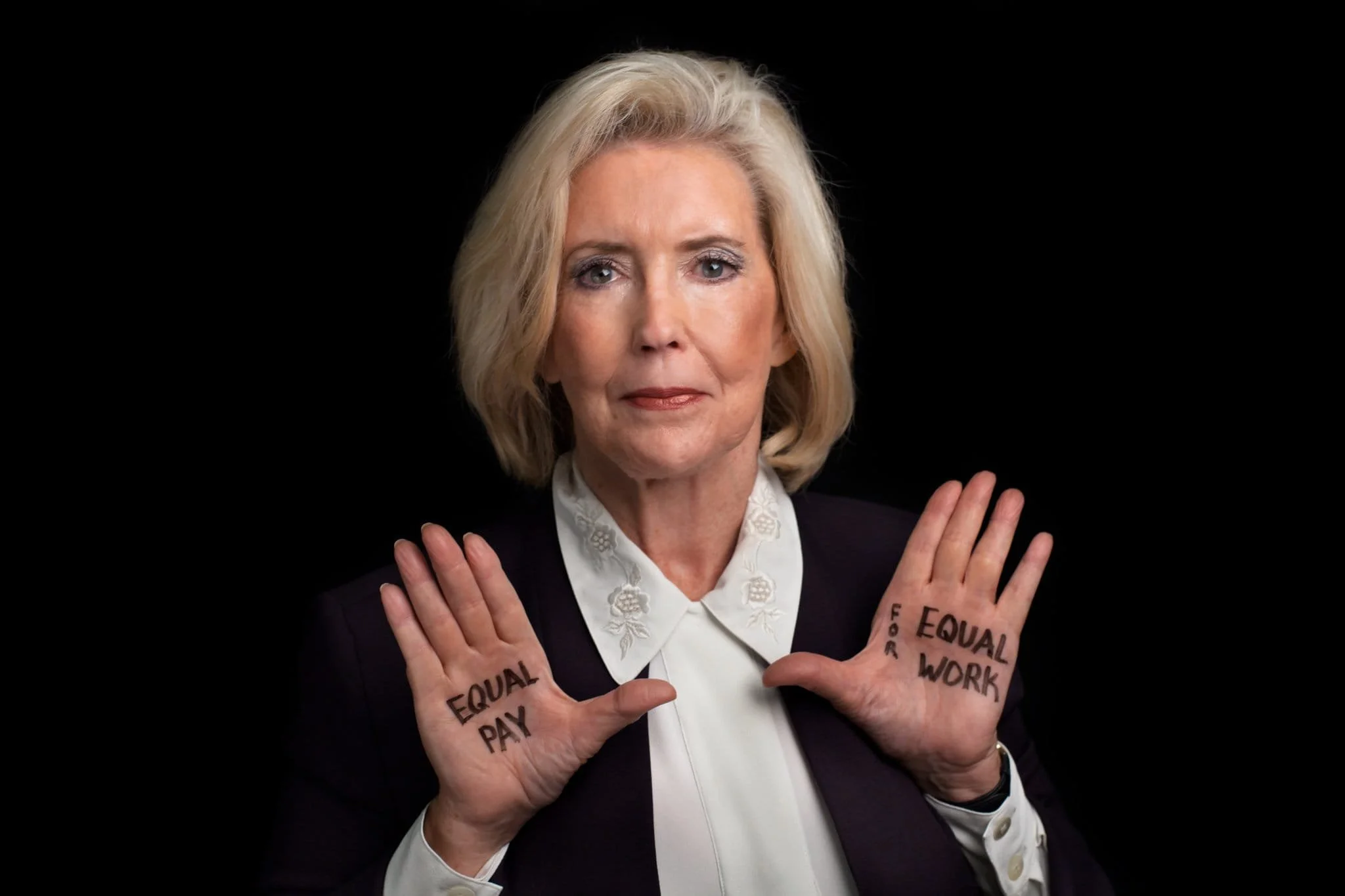
the film
LILLY is a timely, political thriller based on the remarkable life of Fair Pay icon Lilly Ledbetter to commence principal photography October 2021 in Atlanta starring the glorious actor Patricia Clarkson. LILLY is a dramatic feature film in the tradition of other socially relevant movies such as Silkwood, The Insider, Erin Brockovich, Philadelphia, and Spotlight, and can garner large audiences, affect culture, and contend for awards.
The Lilly Ledbetter Fair Pay Restoration Act of 2009 was the first piece of legislation that President Obama signed. While many people are familiar with Lilly’s legal and political achievements, our film is a heartbreaking family narrative illuminating the personal toll of challenging entrenched bastions of power, the story folks don’t know.
LILLY’S STORY
Lilly Ledbetter grew up in Possum Trot, Alabama, on a dirt farm without electricity or running water, picking cotton at the age of eight for pennies. A smart girl, with big dreams, she married Charles Ledbetter, her high school sweetheart and lifelong mate, with whom she had two children. But Lilly and Charles struggled to make ends meet. Determined to elevate their family into the middle class, Lilly found the “best-paying job in the county,” a night supervisor at The Goodyear Tire Factory.
Despite Lilly's “first-one-in” and “last-one-out” work-ethic, her days were fraught with "good ole boy" misogyny. After enduring myriad family sacrifices and twenty years of sexual harassment, when she discovered that the company was also cheating her, paying the men twice what she was earning, denying her wages, retirement, and pension, she focused her rage on setting this injustice right.
Jon Goldfarb, a fierce, young civil rights lawyer, convinced his firm to take on her case pro bono. Though the cap on damages was $60,000 at the initial trial, the jury awarded Lilly $3.8 MILLION dollars. Goodyear immediately appealed and Lilly lost on a technicality, never to see a dime.
Emboldened by the injustice, Lilly and Goldfarb took their case to the Supreme Court to fix the discrepancy in the law, however, corporate interests once again prevailed. As a result, Justice Ruth Bader Ginsburg, in a rare-spoken dissent from the bench, urged Lilly to take her cause to Congress. Despite Lilly's lack of polish, perhaps even because of it, her notoriety spread as she crusaded through the halls of Congress, speaking plainly of the inequities facing women in the workplace. But as she became synonymous with the “face of Fair Pay,” powerful players, determined to undermine her efforts, endangered her family and put her life in jeopardy. Throughout all of this, when Lilly was not in court, or in Congress, she was taking care of her beloved Charles, now seriously ill.
Lilly became the voice of a movement, speaking at the Democratic convention, advocating for equal pay for equal work. While she didn’t succeed for herself, her advocacy became a fight for others, and that pride fulfilled her destiny of purpose. Though Charles did not live to see her achievements, Lilly was able to heal deep wounds with her children and know that her granddaughter would have a better future.
Director’s Statement
When I first heard Lilly’s story, I was captivated by her achievements and struck by how her journey hit every sweet spot on the classic storytelling roadmap. I optioned her life rights and her beautiful memoir, Grace and Grit, and immediately got cracking on the screenplay. I'm thrilled, beyond measure, that Patricia Clarkson, a profoundly gifted American treasure, will accompany me on the journey of bringing Lilly’s story to life.
Whistle-blowers. Truth-tellers. Underdogs. My favorite films have always been about tenacious fighters, whether their battles be political or personal. My goal is to make a hard-hitting thriller that will keep the audience on the edge of their seats and their hearts full of hope. Though Lilly Ledbetter’s political achievements are the architecture upon which the narrative of the film is framed, and the issues of Fair Pay and Gender Equity are clearly thematic pillars, my focus as a filmmaker is the personal and psychological cost of Lilly’s relentless struggle.
I will paint a portrait of a woman who, without education or resources, suppressed by her time and place, and thwarted by one repressive patriarchy after another, finds it within herself to confront multiple monolithic institutions, transforming into the woman she had always envisioned. I’m interested in the traumatic effects of relentless obstruction and the moral courage to surmount it. LILLY is a story about radical resilience.
As a woman director working in Hollywood for the past thirty years, I know gender discrimination first-hand. As we fill the ranks of our production staff, department heads, and crew, our priority will always be to hire women. I am honored that Lilly has put her trust in me to share her story with the world. I believe this is the perfect moment for this film.



